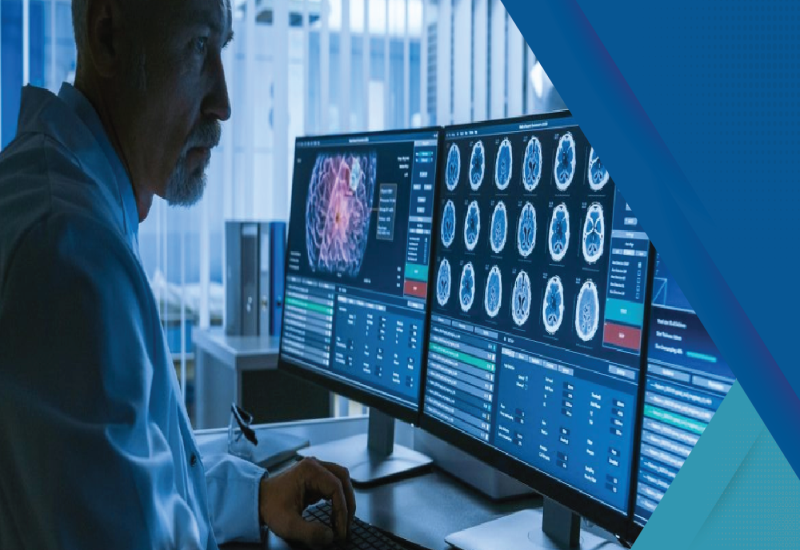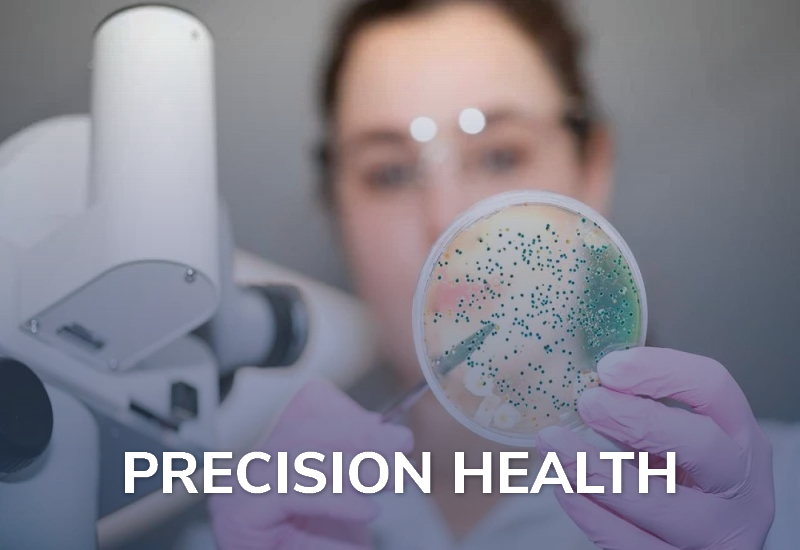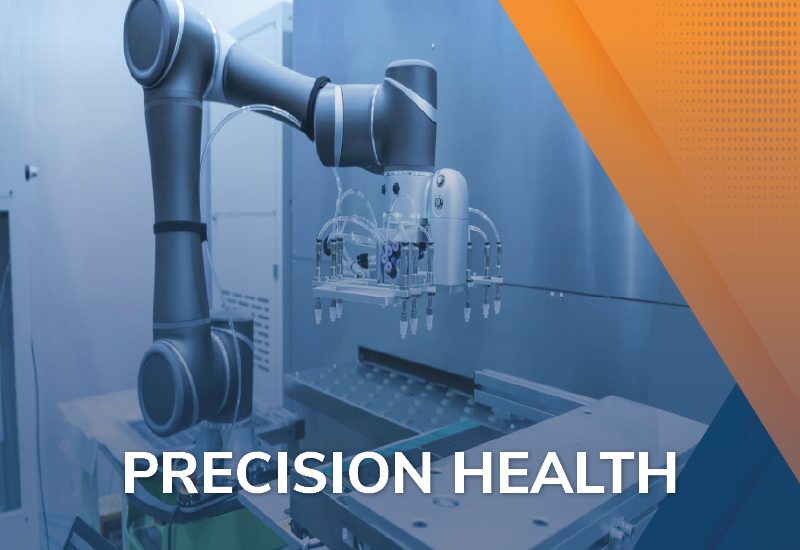







Precision Health has become crucial for value-based care and population health management, driven by evolving consumer preferences and technological advances. Personalized care is now a patient expectation, making it necessary for providers and payors to adopt precision-based approaches to stay competitive. Failing to do so may lead to poor patient outcomes, higher costs, and lower quality of care. Act now to revolutionize precision health!

The precision health sector is poised to transform the healthcare industry as the demand for personalized medicine continues to soar. While this presents a significant opportunity for startups, scaling in this space poses several challenges. What are these challenges, and what opportunities could arise from them? Who are the game-changing startups that are disrupting this sector? Are you prepared to become the next game changer in this space?

As customers demand greater convenience, customization, and cost-effectiveness, incorporating healthcare IT is no longer an option, but a necessity. Companies must follow a disciplined growth pipeline management and embrace the best practices to remain competitive in this dynamic space. How does your company plan to adapt to the changing landscape of Healthcare IT? Is your organization prepared to embrace the inevitable transformation?

Find out why the Cloud-based medical imaging solutions are becoming an alternative to on-premises solutions for faster and more efficient image storage, distribution, analysis, and diagnosis. Also, explore the major opportunities stakeholders in this ever-evolving sector can leverage from.

Examine how companies are innovating to address current surgical challenges using functional imaging, intraoperative imaging, 3D printing, and cloud computing for efficient planning and navigation. The aim is to identify future growth prospects and strategies of key players.

How has digital biomanufacturing impacted development? What are the newer modes of delivery? What is the global adoption rate? What are the prospects for developers? Which growth opportunities are being triggered by the collaboration between contract development and manufacturing companies?

Changes in Care Delivery Models
Over the past five years, there has been an expansion in care delivery models in healthcare. Traditional healthcare providers are a leading force in this change, expanding their footprint geographically and in the range of services offered. Health systems have merged or acquired standalone facilities, bought primary care practices, opened urgent care centers to expand their reach and provide a lower-cost alternative to emergency rooms for after-hours issues, and partnered with ambulatory surgery centers as more procedures move out of hospitals. During the pandemic, almost every healthcare provider offered virtual visits to continue seeing patients, and many added remote monitoring services and hospital at-home programs to better track patients with chronic conditions or better manage post-acute care recovery.
Schedule a dialog or email us at myfrost@frost.com to connect with an industry expert at no charge. We are taking unprecedented action to make our team available to help you cut through the media and politics to get factual one-to-one guidance for the issues and opportunities that matter most to your business.

Examine emerging technologies like targeted drugs, cultured commensals, & bacteriophage therapies
Read more Request Info
Explore the rapid molecular lateral flow diagnostics & non-invasive glucose monitoring technologies
Read more Request Info
Will regulations and sustainability programs power major companies' transformational growth?
Read more Request Info
Who are the major vendors, their focus, and the various areas of their expertise & leadership?
Read more Request InfoWorld Kidney Day is observed every second Thursday in March to raise awareness of such kidney-related diseases and the general importance of our kidneys to overall health. This global campaign is geared toward raising awareness to reduce the frequency and impact of kidney disease and its associated health problems.
Read more
The development of next-generation sequencing (NGS) technology, a wide array of informatics, and robotics are some of the most recent technological advancements in life science instrumentation and tools. According to a recent analysis by Frost & Sullivan on the global sector for life science instruments and tools, investments in lab automation and analytics will hasten the growth of the lab instrumentation sector. The global sector is anticipated to grow at a compound annual growth rate (CAGR) of 6.4%, from $66.37 billion in 2021 to $90.41 billion in 2026.
Read more
With an FDI of over $19 billion up to 2022, an outlay of $26.5 billion as a part of the PLI scheme (covering 13 sectors), and an expected $419.2 million investment in R&D in 2023, the Indian pharmaceutical sector is set to witness growth in 2023. Additionally, with investments in R&D, the budget is a precursor to the strategic imperatives driving the Prime Minister’s vision of Universal Healthcare, the “Atmanirbhar Bharat” vision for innovation in advanced therapies, and the G20 Presidency agenda of healing, harmony, and hope. Moreover, the announcements provide continuity to the “Pharma Vision 2020,” initiated by the Department of Pharmaceuticals, which aims to position the country as a global hub for end-to-end drug discovery.
Read more
Frost & Sullivan assessed the artificial intelligence (AI)-enabled digital pathology solutions sector, and based on its findings, recognizes Flagship Biosciences with the 2023 North American Customer Value Leadership Award. The company is a technology-driven spatial biology and biomarker analytics service provider using the most precise and comprehensive data. The company’s consultative approach and cutting-edge AI are changing biomarker analysis to enhance drug development and diagnostics. It uniquely leverages its technology to meet its customers’ needs.
Frost & Sullivan’s recent analysis, Reimagining Women’s Health, presented at Arab Health by our Healthcare and Life Sciences Partner and Senior Vice President, Reenita Das, focuses on the evolving healthcare issues of women, such as menopause and infertility. She urges the healthcare sector to address them by developing holistic and personalized care delivery models.
Frost & Sullivan recently analyzed the healthcare cloud sector and, based on its findings, recognizes NetApp with the 2022 Global Technology Innovation Leadership Award. The company is a leading global platform-as-a-service healthcare cloud services provider that leverages its extensive experience and complete cloud solutions portfolio to accelerate innovation while unlocking the potential of the cloud and improving data protection. It increasingly adopts strategies to manage data efficiently, eliminates information silos, optimizes resources, reduces data center footprints, and leverages artificial intelligence (AI) to drive actionable ideas. NetApp delivers industry-leading data management and storage solutions on AWS, Azure, and Google Cloud. The company helps customers better manage, protect, move, and store their data while remaining agnostic about the data location: on-premises, private cloud, public cloud, hybrid cloud, or multi-cloud environments.
Read more